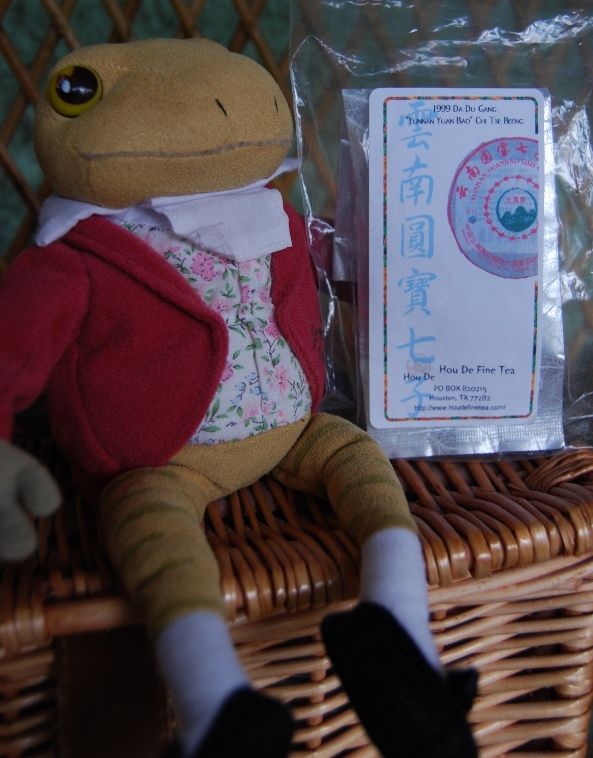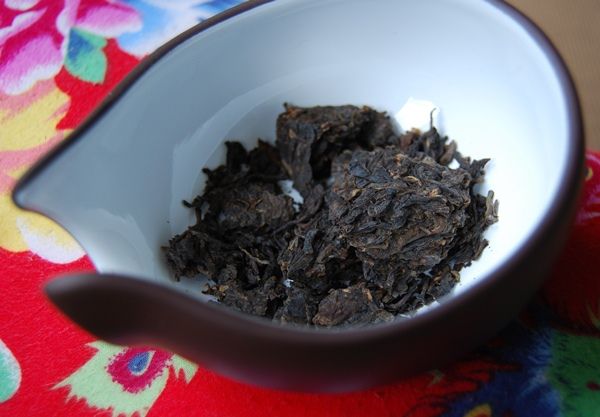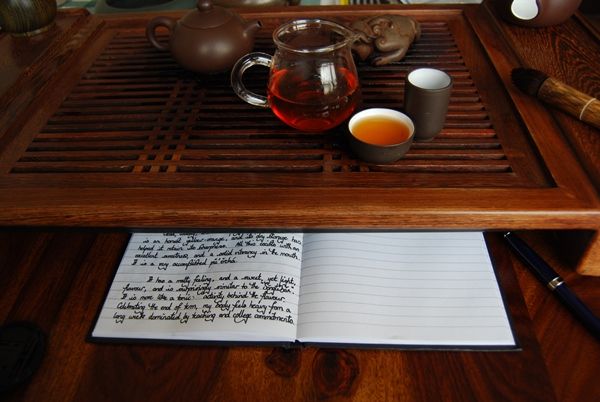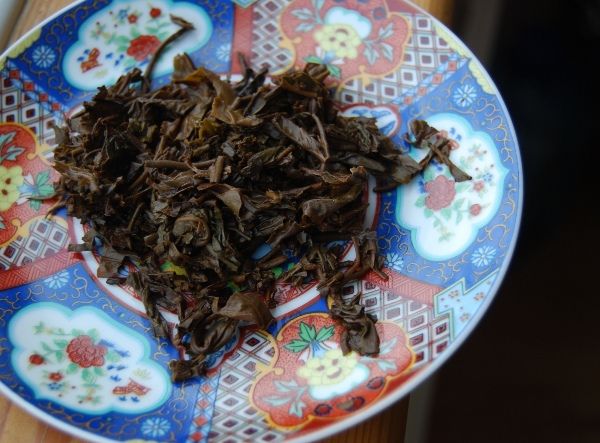Kudos to Dr. Lee for stocking a varied and enjoyable range of "tasting sets", some four years ago. It consisted of some landmark teas, such as the 1999 Menghai "Dalushu" [Big Green Tree]. Concerning the latter, if you will excuse me for quoting myself, I wrote the following when I dipped into it, during 2008:
This is an excellent tea with which to "kill the Buddha". History, yes. Landmark in the tradition of processing, maybe. Awesome tea: that's less obvious.
It's important to keep an open mind, and to see what's really there in front of you, not what others have told you is there. This is "killing the Buddha".
For all you Beatrix Potter fans out there
Some years later, I realised that I haven't tried some of the "tasting set", such as this "Yunnan Yuanbao" [Yunnan round treasure] cake from Dadugang. This bing has a convoluted history: the famous state-owned Dadugang brand was acquired by Longyuan [Dragon Garden] Tea Co. in 1999, and this must mark one of their first productions. Or it would be, had they made it - instead, according to Guang's notes, they deemed it unprofitable to make a small run of laoshu cakes, and so contracted the job out to (the similarly newly-established) Changtai Tea Co.
So, this is really a Changtai cake. Surely, this is A Good Thing.
It also makes it the very close sister to the 1999 Yichanghao "Songtiban", with which it shares many characteristics, and the sister of the 1999 Yichanghao "Yiwu", with which it has rather less in common.
It also makes it the very close sister to the 1999 Yichanghao "Songtiban", with which it shares many characteristics, and the sister of the 1999 Yichanghao "Yiwu", with which it has rather less in common.
At $14/10g ($525/cake) at Houde, this makes for a moderately expensive session, but one to which I feel thoroughly entitled after changing nappies, bathing babies, and doing tons of handiwork around the home. It's also the first day after the end of Hilary Term, and therefore requires some celebration.
(He said, attempting to justify his own hobby to himself.)
An advanced plummy aroma jumps out of the sample packet. As may be seen above, this is an old-fashioned cake, made from small leaves. You can also see that it has aged rather well.
Clean, woody, and sharp - this has seen a great deal of dry storage, which also comes out in the colour of the soup, which (contrary to the photograph above) starts out as a yellow-orange. That razor-sharp precision in the character has seen very little muddying or dampening due to more humid types of storage.
Is it a charming, woody, and enjoyable tea? Yes, it is.
Is it a classic of our times, likely to stop clocks and halt traffic? No, it is not. The body is "loose" and watery, and its character feels distant, as if observed from far away. It is smooth enough, in the manner of downy, tippy pu'ercha, but it is not full, nor robust.
I enjoyed its soothing chaqi, which was of that remarkable type that simultaneously calms and brightens, just like a tonic. I am reminded of the stories of elderly Chinese chaps holding onto tons of old pu'ercha for precisely that purpose: a tonic with which to balance the physiology.
Just what a man needs on a special Saturday morning.





2 comments:
My experience and assessment of this tea was quite similar to yours, although qi-wise this one stands out for me as almost too far over the top. I see that Hou De no longer lists this cake for sale on his website, leading me to wonder if he's pulled the last 6 or so cakes (last I looked a few weeks ago) with the intent of re-listing them at a higher price sometime in the future (per a recent blog warning of his regarding changing his pricing on some teas).
- bev
Dear Bev,
I can only imagine the price at which this would be sold at Houde! It is not sufficiently appealing to me, at least.
Don't get me started on raising the prices on one's inventory because it would "not be sustainable" to do otherwise ;)
As always, customers will vote with their wallets, and my vote is unambiguous.
Toodlepip,
Hobbes
Post a Comment